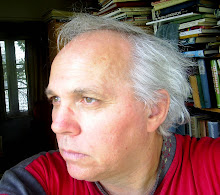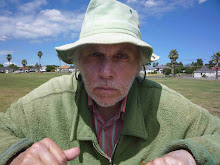e y e
eye is seeing and being
eye is blue brown or grey
eye is black or other
eye is
eye is eye
eye is lustrous or strange of colour
eye is light on eyelight scrawled
eye is hope
eye is desire and sigh
eye is see
eye is of the ineluctable
eye is trust and fear
eye is water and dust
eye is love
eye is blankness and delight
eye is people is peopled
eye is pop
eye is delight of bird
eye is horror of wound
eye is I saw gull with one leg severed
eye is sad and later and after forgets
eye is seeing and hoping
eye is deceiving
eye is sweet descent and great descant
eye is concise as lines
eye is eternal thought
eye is rock and ash and blood
eye is pity or is harsh of heart
eye is son and song
eye is child and sweet
eye is thought
eye is
eye is death and the way
eye is love and luminous
eye is fire and hand and hard
eye is
eye
eye is begin and end and egg
eye is lie there is no end or begin
eye is pluck
eye is dark and stern with storms
eye is terrible and drinks death
eye is mercy
eye is offend or smile or wise
eye is sea blue wise
eye is omega and noun and nous
eye is lumen
eye is
eye
eye is reflect and ripple and still
eye is quill
eye is word
eye is thought and spiritual space
eye is sea
eye is nothing and all
eye is one
eye is love or gone or rills
eye is hills where speech is death
eye is great and complex bread
eye is mathematics
eye is translucency
eye is complexity deferred
eye is joy for she was my mother
eye is suffer the gull or the woman
eye is child
eye is the man
eye is all language
eye is speech and silence
eye is i
eye is thin blue ink
eye is death and exult
eye is dream of waves
eye is motion
eye is
eye
eye is how would I hold you
eye is perplexity and anger and peace
eye is forest
eye is forgive
eye is eternal unterminate torment
eye is could be
eye is possibility
eye is e ...y...e
eye is si
eye is an ancient irradiate star
eye is a black factory
eye is blue
eye is ship
eye is
eye
eye is eternal colour
eye is woman and man
eye is language
eye is all
eye is
eye
.jpg)



6 comments:
I is am.
wheeze.
blll dIreen
I'd better follow up that attempt at compression. That first comment was only to say there is in this something of the esse est percipi (if that's right), the "to be is to be perceived" argument -- but you show that to perceive is also to be. Pause: as someone in Juliius Caesar said, "the eye turned inwards sees not itself". Well, as English says so effectively, "I would dispute that", and you have just as effectively disputed it! B.D.
I am not using Descartes' argument (although that can be subsumed) - this is section of EYELIGHT in a way just as if one were looking at huge canvas - a triangle of blue might be in one corner and something - say a black and yellow face in another part of the "picture".
So this section is - while EYELIGHT includes (or questions) the concepts of being and essence and so on it doesn't imply any conclusions or even any knowledge all "knowledge" or facts for me are tentative. This is a complex area - the "poem got its name from the poem that goes:
The Bright Revolve
To see with the naked eye
what was seen with the naked eye:
back back back back,
and forth, and back and forth:
and in true, these black-faced mirrors
shiver reflect the wilderness
of backward forward fragment worlds
that are strange agonal with toe and claw.
That acting agony. It cannot be said. Again.
At night: the crucifix cries. This slow,dark dance. The pen, finally, dies – and the painter’s
brush, the oboe, and the ink. Those gone aways.
Look out to that bright revolve.
Nothing is about.
Who is that old man who rages in the storm?
The and what speak you a third more opulent man?
When I began, I – I knew something. No matter.
What is it in us that we mutter, meander, and muse
on things dissolving as we do?
Roots limbs nerves trees stand stark:
black veins on eye-light scrawled .
To perish powerfully, despite ferocity, and the queerness of how you are becoming a spoon.
You have hell in your hands.
From that poem I took the line -
"black veins on eye-light scrawled"
Then I took one word: "eyelight"
So "EYELIGHT" a word inside a poem became the title and generator of a larger poem. Generation. Words beget words.
I don't think anything can be finally known or proven by philosophy
or science or politics or "art" or religion we can only map - or try to. Maybe via "art" we see glimpses of some kind of esse or even "light" or I think the other Bill of Arden and London started to doubt all these realities when he read Montaigne (translated by his contemporary Florio) - and he and I and Shakespeare/Shakespear/Shagspear/Hamlet/
Richard (his brother)/other [ "Fixed spelling" is useful but relies on an erroneously rational world "All the naively scientific logic" (Glenn Gould)]
would agree - nothing can be known
Even the full stop can deceive
I was also "echoing" Christopher Smart whose long poem Jubilate Agno was brought to my attention by Scott Hamilton (Duns Scotus 2!).
In this "room" a more random "poetic" event is let in so this is another thread I took from book 5 or 6 - I have about 10 large books with the various "threads" in them - I am never quite certain what is going to happen next (but there is a general structure - I proceed by starting with a large or longish poem and go more or less in order through my various books and then start again - and there is a general raison d'etre so to speak - it isn't like Joyce's work in Progress I am not a determinist (nor was he completely - chance plays a part in FW) - or even one who necessarily believes in Vico's cycles - Joyce used Vico I think more for a structure and a possibility. Joyce believed in the soul (but not a Judaeo Christian God) - I think I do also - but what it is I am not sure.
"All things are a flowing" but also they are growing and constantly changing - yesterday I planted runner beans and I want to develop my garden (which is now a "wilderness" - as it will remain even if I "develop" it) - that is also part of the EYELIGHT - which is an ongoing organic process - not a poem really - a process - as life is a process - conceptually and perhaps actually infinite. I have no fixed ideas no "beliefs" - only a strange hope.
I do dispute (but I am not philosophically combative - philosophy is somewhat mood dependent for me)- but I feel that we do and don't see ourselves.
Thanks for your comments - ideally and de facto the comments become a part of the "poem"/project which constantly changes direction as rivers do and as nature does. No one can ever "know themselves" but the effort to do so is a valid project. (As is the choice to not think about anything at all of "significance".) I have no idea who or what I am
I suppose my "viewpoint" is existential and phenomenological.
Another influence is Blake. But also my friend Leicester Kyle and Alan Sondheim - though he has been wrestling with all aspects of computing and the Internet and philosophy etc for years more than I.
He is at least keen on Merleau Ponty, Derrida and (many others) - but also I think in communication theory and technology - with him science and technology (I was also involved in telecommunications and electronics** and also as a lineman and a cable jointer [so most of my life I have worked in either factories or as a lineman or technician I am not in academia (I have an NZCE (telecoms and electronics etc) and also a BA) - but I don't abjure that world - I have no bitternesses or biases ] - hardware and software merge with language - and the body etc But he is fascinated with (the late) Kathy Acker's work* (he knew her personally) - I don't know much about her work but she was or contributed to the L=A=N=G=U=A=G=E or language" movement and their critical discussions. Olson is important and others - also Eliot, Pound, WCWs, Schuyler, Ashbery and so on. But many others - even Wystan Curnow and Michelle Leggott.
Zukofsky of course.
* Jack Ross cites her as an influence on himself.
**
The electronics/telecommunications and the "human" or speech aspects morph or interrelate. The living media and the medium.
Nothing is easy
One looks at great and "terrible times into:
"the heart of light, the silence".
" this is section of EYELIGHT in a way just as if one were looking at huge canvas - a triangle of blue might be in one corner and something - say a black and yellow face in another part of the "picture"."
Great analogy, it helped me to understand what's happening here. Thanks.
I should have added that the 'esse est percipi' is from Bishop Berkley who'se idea was that being is being perceived. It seems crazy but it's hard to dispute. Berkley also challenged Newton and Leibnitz on their 'infinitesimals' as he was a mathematician. This both knew was a problem with calculus or the 'fluxions' I think Newton called it.
The mathematicians used 'limits' but I don't know the arguments for that. The general idea is that as calculus works, of course it is greatly useful and limits shows it and usage to make calculus valid. But we who sit on the sidelines smile ironically.
Because we don't understand the mathematicians (most of us) we are the more convinced that a sleight of hand has taken place even if the maths works!!
But poetry is never quite philosophy or maths so my project tries to wrench poetry etc into another form shall we say. For me it is an ongoing and (complex?) play. Can the eye see the self looking in...in other words (I think Shakespeare got that idea from Montaigne) can we know ourselves. Montaigne claimed to know nothing. But there has, I fee, to be something: what it is I don't know. "I is another." was Rimbaud of course. Well, I don't know. I am like poor Caliban on Setebos, asking asking, as Browning has him...in his poem of that name. "Eye". The key word of course with the most obvious rhyme. Militon: 'And that one talent which is death to hide. /Does God exact day labour, light denied. /Thousands at his bidding speed o'er land and sea./ They also serve who only stand and wait.' (From memory, I think that is something like it: from 'On His Blindness'). The poet Creeley had only one eye.
Post a Comment